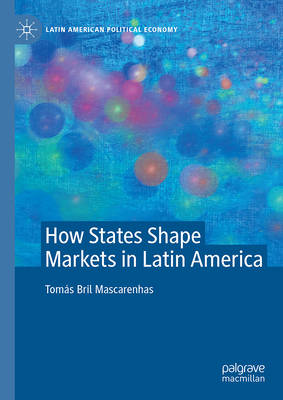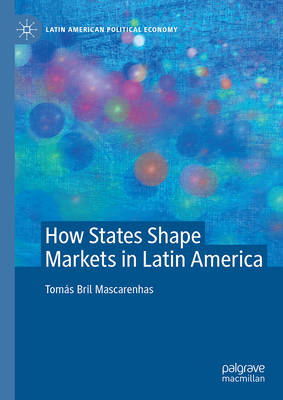
Je cadeautjes zeker op tijd in huis hebben voor de feestdagen? Kom langs in onze winkels en vind het perfecte geschenk!
- Afhalen na 1 uur in een winkel met voorraad
- Gratis thuislevering in België vanaf € 30
- Ruim aanbod met 7 miljoen producten
Je cadeautjes zeker op tijd in huis hebben voor de feestdagen? Kom langs in onze winkels en vind het perfecte geschenk!
- Afhalen na 1 uur in een winkel met voorraad
- Gratis thuislevering in België vanaf € 30
- Ruim aanbod met 7 miljoen producten
Zoeken
Omschrijving
Why have Latin American countries developed sharply divergent financial systems--and how do these systems shape national growth strategies? While Chile built large capital markets and Brazil expanded long-term credit for firms, Argentina lags behind in both. What explains this variation? This book uncovers the political origins of national financial systems by examining how coalitions of executive-branch officials reconfigure markets through two levers: the governance of the pension system and the deployment of state-owned banks as long-term lenders. In Chile, neoliberal técnicos dismantled the state's capacity as a lender and set up regulation inducing private pension funds to invest in domestic equity and bonds. In Brazil, a developmental coalition expanded BNDES and activated state-owned-enterprise pension funds as institutional investors. By tracing how political struggles inside the state shape markets, the book offers an innovative view of statecraft and marketcraft in Latin America. It speaks to scholars of political economy--and to policy entrepreneurs working on development across the Global South.
Specificaties
Betrokkenen
- Auteur(s):
- Uitgeverij:
Inhoud
- Aantal bladzijden:
- 20
- Taal:
- Engels
- Reeks:
Eigenschappen
- Productcode (EAN):
- 9783032059376
- Verschijningsdatum:
- 18/11/2025
- Uitvoering:
- Hardcover
- Formaat:
- Genaaid
- Afmetingen:
- 148 mm x 210 mm
- Gewicht:
- 666 g

Alleen bij Standaard Boekhandel
+ 316 punten op je klantenkaart van Standaard Boekhandel
Beoordelingen
We publiceren alleen reviews die voldoen aan de voorwaarden voor reviews. Bekijk onze voorwaarden voor reviews.









